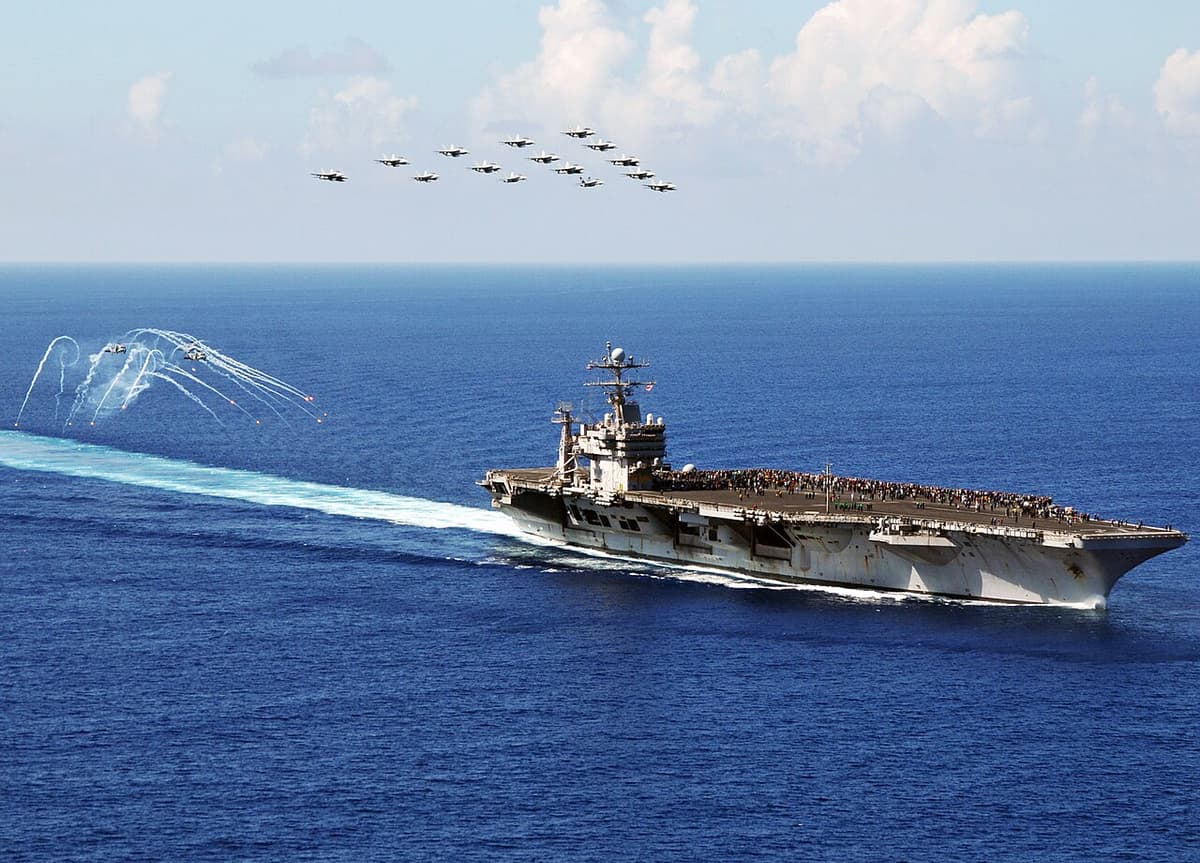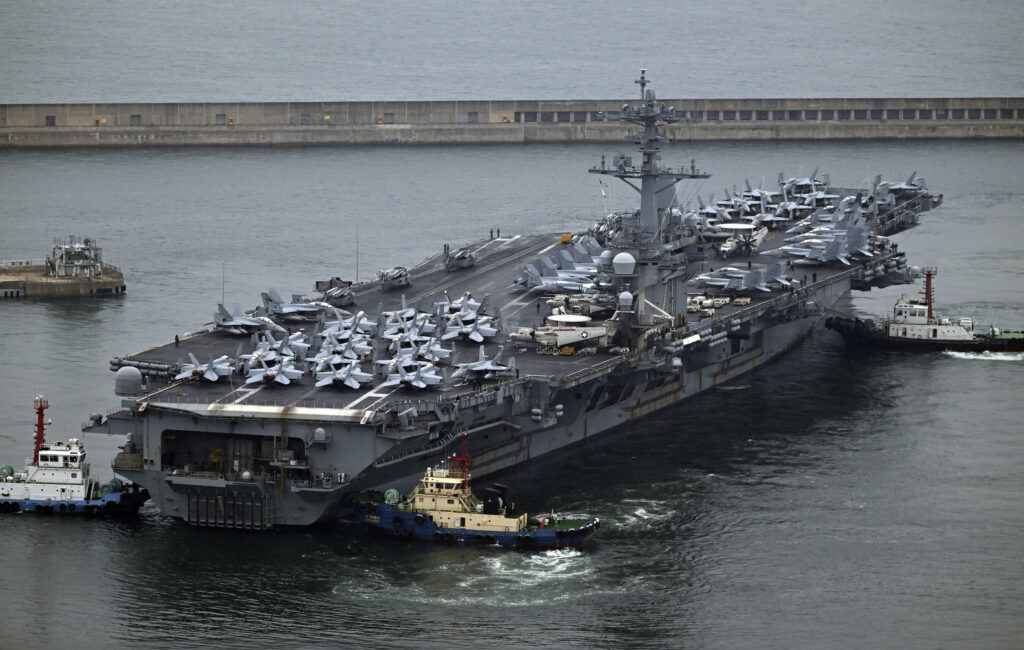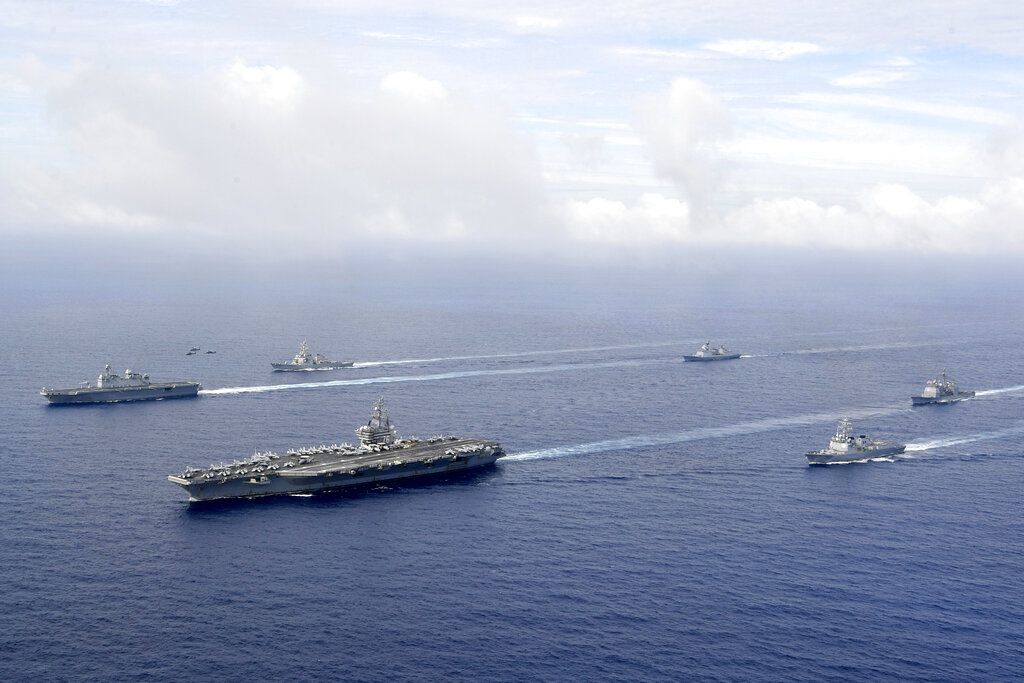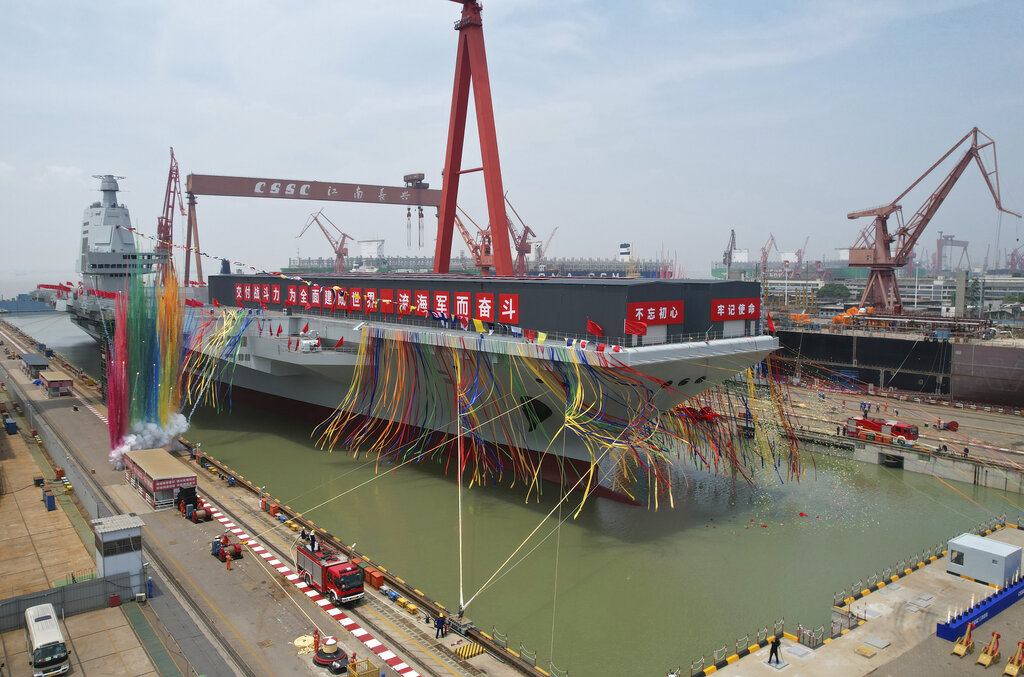As Carriers Leave the Pacific Undefended, Can America Call Itself the World’s Top Superpower?
We are ‘like that Dutch boy with all these dikes, and more holes are springing than he’s got fingers,’ a retired Marine colonel says.

As American aircraft carriers are absent in the Indo-Pacific region for the first time since 2005, can the United States rightly call itself the world’s top superpower? Beyond Washington, enemies are taking notes and testing that proposition with increased aggression.
The United States Ship Abraham Lincoln, arrived in the Mideast this week. It has left the Indo-Pacific to join the USS Theodore Roosevelt in an attempt to deter the Islamic Republic of Iran and its proxies, which are threatening attacks on Israel.
The departure of the USS Abraham Lincoln, however, is leaving a void in the Pacific. As it left the region, the USS Ronald Reagan sailed out from Yokosuka, Japan, for routine maintenance. The USS George Washington, which is scheduled to replace the Reagan, is stationed at San Diego, and other carriers are either undergoing repairs or in port. At best, the next American carrier will reach the Pacific in weeks, if not longer.
We can “walk and chew gum at the same time,” the Pentagon’s press secretary, Major General Pat Ryder, said Tuesday. “As we look at requirements around the world in support of our national security interests, we’re always taking great care to make sure that we can cover those commitments to include, in our priority theater, which is the Indo-Pacific region,” he said.

“We have a significant amount of capability there to include a large naval presence,” General Ryder added. Per security considerations, he declined to detail ship movement and say when an air carrier would next deploy to the Pacific.
Yet, is “significant” American capability enough? The People’s Liberation Army Navy is growing while America’s Navy shrinks. Meanwhile, as Communist China increasingly threatens Taiwan, Japan is growing jittery. Around the Philippines, Chinese vessels take over an ever-growing territory that Beijing claims as its own, even though without much credibility.
One of America’s oldest mutual defense treaties, the 1951 pact with the Philippines, has not been updated to address current defensive needs. When Chinese vessels assaulted the Scarborough Shoal in 2012, President Obama advised Manila to go to international arbitration.
After The Hague ruled for the Philippines, Beijing said the decision amounted to no more than a scrap of paper. Washington, however, did little to help enforce the ruling. Now, as an emboldened Beijing is increasingly attacking its territory, Manila once again looks for more American support.

The America-Philippines treaty is “a great deterrent,” Manila’s defense secretary, Gilberto Teodoro Jr., said Tuesday, adding however, “I think it is important that it should be interpreted dynamically, and the biggest danger for us is to narrow down, or canalize our operational limitations.” Listening intently were the American ambassador at Manila, and top American naval officers.
As interpreted, the treaty would trigger American intervention only in case of a kinetic assault. It does not necessitate action to deter future attacks, such as dispatching an American air carrier to the region.
The treaty “only applies in the event of armed attack,” a Center for Security Policy fellow, Colonel Grant Newsham, tells the Sun, speaking from Manila. Mr. Teodoro “didn’t say, please send your ships out, aircraft out, but that’s what he meant.”
Yes, he adds, the Philippines “don’t have the ships and the aircraft to defend themselves, so they need the Americans to help.” America, he adds, “has a lot military assets — ships and planes — in the region, but having aircraft carriers there gives you a lot of flexibility, and not having them reduces your options.”
A retired Marine, Colonel Newsham says that America’s overall firepower is lacking even as the Chinese, Russians, and the North Koreans are yet to carry out serious assaults on American interests in the Pacific while Iran is threatening in the Middle East.

“America is like that Dutch boy with all these dikes, and more holes are springing than he’s got fingers,” he says. Meanwhile, “the Chinese have been cranking out about five ships for every one we have.”
The People’s Liberation Army Navy now has about 350 warships, to America’s 290. By 2030, the PLAN will possess up to 450 warships, as well as coast-guard vessels that are built like warships. While America’s technology might be superior, which would probably mean victory in a direct confrontation, Beijing is catching up.
Since the Cold War, America’s readiness to fight multiple wars has constantly been defined down. Presidents Kennedy and Johnson prepared for two and a half theaters — two major wars and a limited-scope one. After several updates across administrations, President Clinton finally settled on readiness to simultaneously fight against North Korea and Iraq in a two-theater war.
In reality, however, America has long neglected these concepts, and now is extremely leery of fighting even in one theater, let alone preparing to simultaneously fight in the Mideast and the Pacific. “Nobody likes to admit it,” Colonel Newsham says. The two-theater doctrine “was a mythical charade” for more than three decades. “It made us feel good, but it wasn’t true.”
Correction: Colonel Grant Newsham says that the Philippines do not have enough ships and aircraft to defend themselves and need American help. An earlier version of the story misquoted him.

